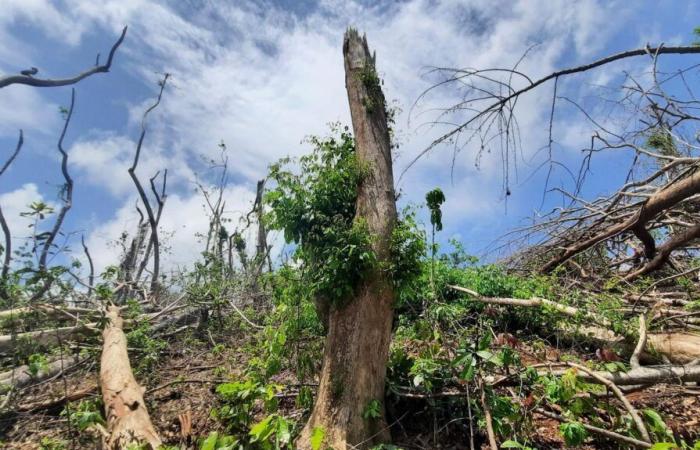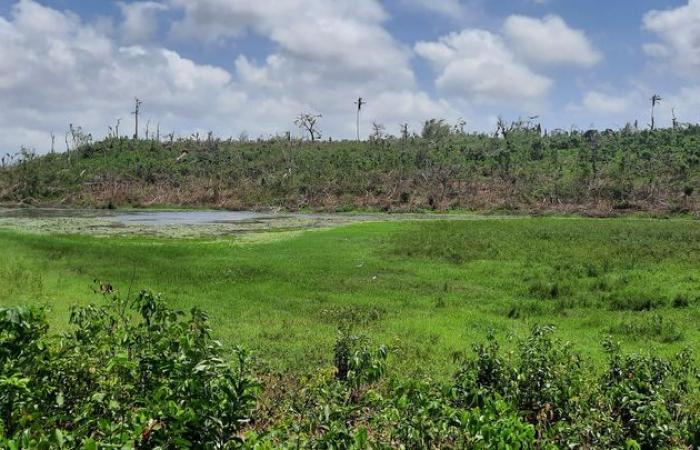In Mayotte, the return of teachers will not take place until next week at the earliest, until the municipalities can put the schools back in order. They served as places of accommodation during the cyclone and then the storm last weekend. Despite everything, life is trying to get back to somewhat normal. The traffic jams have returned, the waste clearance continues.
Although, over the past month, the landscape has greened up, nature is still in a state of shock. The large bats (fruit bats) can no longer hide in the trees, the lemurs (the small local lemurs) have been disoriented and the birds are looking for seeds. The future of the island depends on the resilience of the vegetation.
Lake Karahani, near Combani, is a haven for birds, the only freshwater nature reserve on the island. A site blasted by Chido. The cinnamon trees, the tulip trees, the coconut trees fell, remembers Anisse Ahamada from Gepomay, the Mayotte bird study and protection group: “The trees were piled on top of each other and there you have it, it created this landscape of a cemetery of trees. It’s a shock, you can’t believe it, it totally changes the landscape.”

Same dismay for Daniel Nassur, upon discovering the back mangroves of Bouéni Bay, a month ago : “We were in a green forest, with species of birds that we could hear, a great diversity… We arrive there and everything is devastated, everything is on the ground. It's complete silence, there is no more Nothing.” Emilien Dautrey, the director of Gepomay, believed that nature was not going to recover : “We were wondering how life was going to resume in there. And then suddenly, a week and a half, two weeks ago, the little leaves started to grow again and it was exponential.”
-In fact, like humans, vegetation needed to digest the shock : “We have trees that have fallen over, which still have roots planted in the ground and which are growing again.” The trees should therefore be able to produce fruit and flowers again, which is essential for feeding birds and small local fauna.
Native species – that is to say Mahoraises – need more time to leave. We absolutely must protect them, says Emilien Dautrey, and prevent these areas cleared by Chido from being cultivated. : “There, if we put agriculture in place of forests, droughts are guaranteed every year. We are heading straight into the wall in terms of water resources and all other ecosystem services.” Because the forest and the mangrove are the air conditioners of Mayotte and the refuge of birds and small mammals.
In Mayotte, biodiversity is regaining its rights after being ravaged by Cyclone Chido. Report by Béatrice Dugué
“>
listen (2min)







